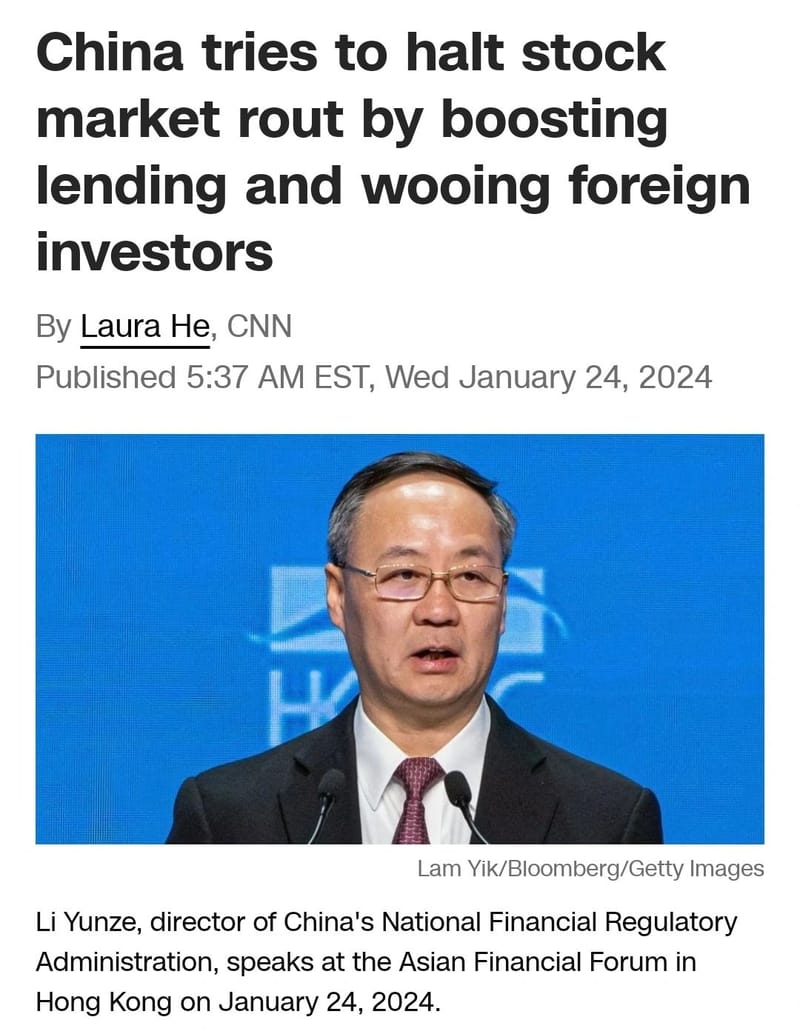
Shannon's excerpt from the article: "CNN [excerpt]: The promises from top officials come after a sell-off in Chinese #stocks intensified this week. Hong Kong’s Hang Seng Index has fallen by 6.7% so far this year, while the #Shanghai Composite and #Shenzhen Component indexes are down 5% and 7.7% respectively.
Now, Beijing is trying hard to restore #confidence. On Wednesday, Li Yunze, director of the recently-established National Administration of Financial Regulation (NAFR), said that #China’s economic fundamentals are stable and promising in the long run, despite short-term challenges.
...Hours later, Pan Gongsheng, the governor of the People’s Bank of China, said the reserve requirement ratio, which determines the amount of cash that banks must hold as reserves, will be cut on February 5. The reduction will provide one trillion yuan ($141 billion) in long-term liquidity to support economic growth, he added.
Analysts from Goldman Sachs said on Tuesday #investors are concerned not only about China’s economic downturn, but also about its policy uncertainties, as its commitment to market-oriented reforms has been called into question.
Li on Wednesday tried to provide reassurance.
'As for the next step, we will study a number of financial opening-up measures and support more international institutions to operate and expand in China,' he said.
'In the future, the policy of China’s financial industry to make greater efforts to attract and utilize foreign investment will not change, the protection of the legitimate rights and interests of foreign investment will not change, the direction of providing a better business environment for foreign investment will not change, and the door of the financial industry will open wider and wider,' he added.
About $6 trillion, equivalent to roughly twice Britain’s annual economic output, has been wiped off the market value of Chinese and Hong Kong stocks since they peaked in February 2021. The astonishing losses, reminiscent of the last Chinese stock market crash of 2015-2016, highlight a crisis of confidence among investors concerned about the country’s future.
...No "quick victory"
Policymakers in Beijing have made a number of efforts to boost sagging stock markets since late last year, and none so far have had a lasting impact.
Premier Li Qiang, who chaired a cabinet meeting on Monday, vowed to take action to stabilize market confidence, according to a read-out published by Xinhua. He urged officials to step up 'medium- and long-term fund injections' in the capital market.
On the same day, major state-owned banks moved to support the Chinese yuan, in order to prevent the currency from falling too fast as Chinese shares plunged, according to a Reuters report, citing unnamed sources."
#News #business

